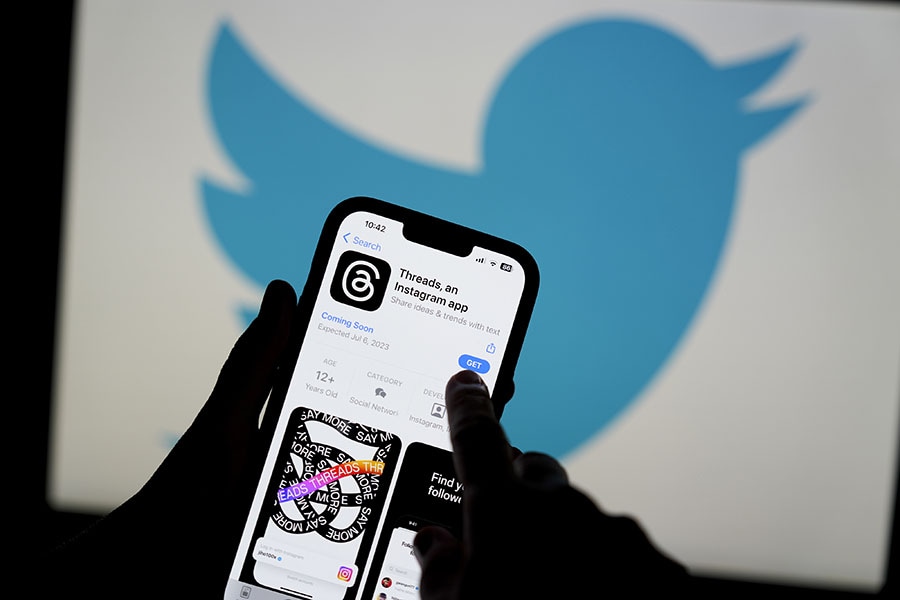
Threads: Dear Meta, don't mess this up
When we fell in love with Twitter, it was helpful, entertaining and most importantly, it had a sense of humour. Can Threads rekindle that spirit?
 Meta’s Threads looks just like Twitter, icons and all.
Image: Paul Hanna/Bloomberg via Getty Images
Meta’s Threads looks just like Twitter, icons and all.
Image: Paul Hanna/Bloomberg via Getty Images
It feels like 2009 again. You’re snuggled in bed on an overcast morning, and scrolling through a feed where people are talking about their favourite monsoon snacks and koala facts; leaders are sharing memes, trolling in good faith; punny jokes are being made about followers being called ‘thread counts’.
It’s not an unfamiliar feeling, but it is one that’s been pushed into the nostalgia bin for a while. A scroll-through feed that makes you smile—it’s familiar yet fresh, and dare we say… smells like hope?
Meta’s Threads looks just like Twitter, icons and all. It’s a leaf right out of Meta’s playbook: Duplicate and they will come. And come they did. Threads crossed 2 million signups in two hours; 5 million in four—and this is before the West has woken up to the new app. Signing up is inordinately easy if you have an Instagram account. One click and you’re in. Another click, and you’ve automatically populated your feed with everyone that you follow on Instagram.
There’s some key features missing, of course. No trending topics yet, but Instagram chief Adam Mosseri promises that ‘Trends’ are incoming. No DMs, but it does link to your Instagram account. No ‘bookmark’ option, which is one of the few new things Twitter has done well. It’s only been a few hours though, so we’ll give it some time to roll out the bells and whistles. “There’s a lot more to come really soon,” Mosseri promises.
Threads is a lot of what Twitter is… and just as intentionally, stressing a lot on what Twitter no longer is. Both Mosseri and Meta CEO Mark Zuckerberg have introduced the platform with the words ‘Open and free’, reiterated. A cursory scroll through Zuckerberg’s timeline will show ‘We’re focussed on making Threads a friendly place!’ more than once, something we can all agree that Elon Musk’s Twitter stopped being a while ago. Instagram, even with its glut of sponsored content and a feed that no longer prioritises people you actively choose to follow, has managed to stay somewhat friendly. Mosseri says that the ‘good tools’ from Instagram will carry on to Threads. This includes their community guidelines, the ability to restrict views and mentions and filter out certain words from your feed.








